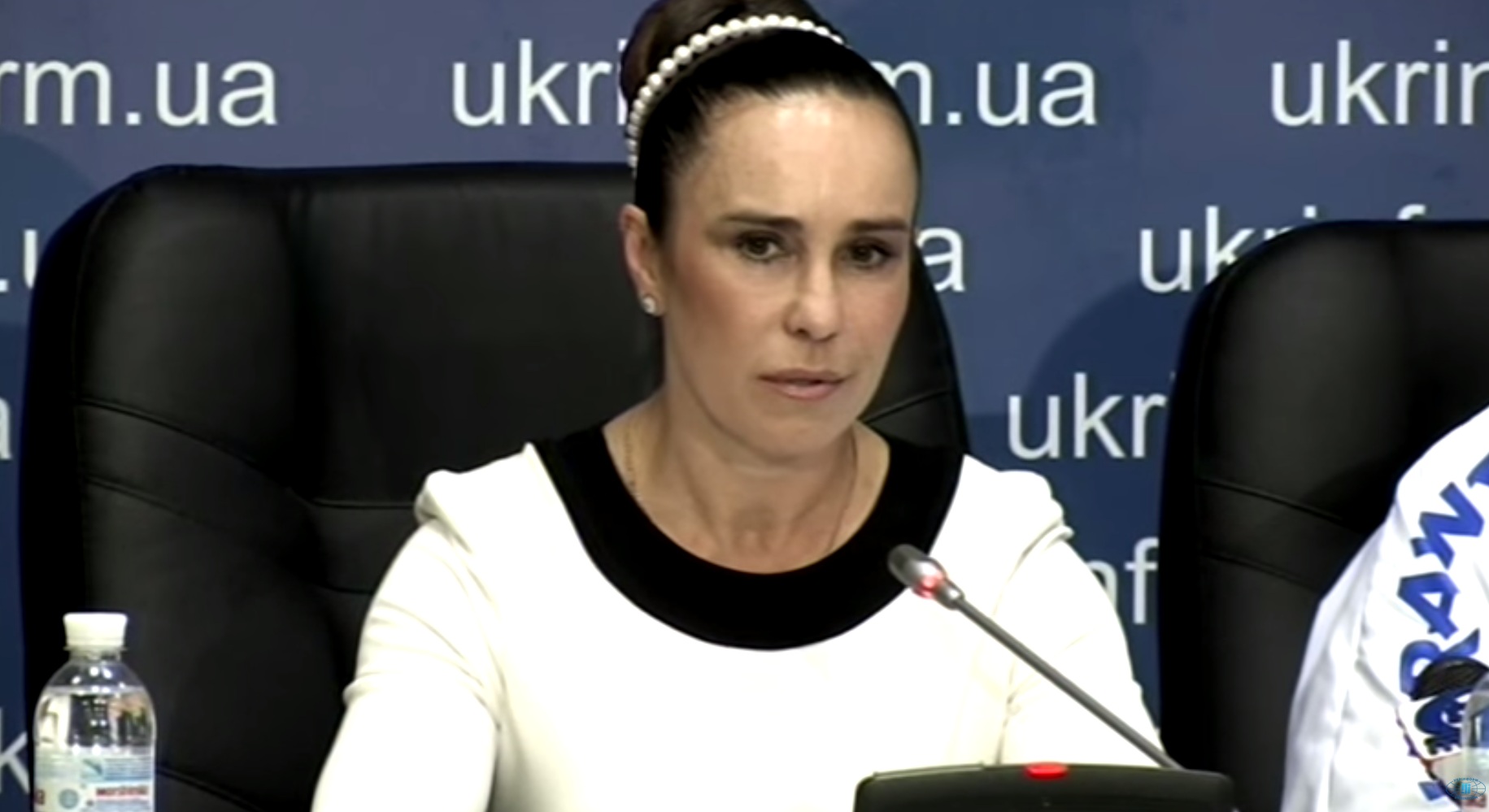Stella Zakharova talked to TASS about the 1980 Olympics for their 40th anniversary. Zakharova was part of the gold-winning Soviet team. For Soviet gymnasts, even getting on the team was a big achievement:
“At the time, the artistic gymnastics [in the USSR] was just perfect. I am proud that it was in the 1980s when I managed to be a world-class gymnast who left her mark in history. All our coaches, choreographers, doctors, and physical therapists paid a huge amount of attention to us and did everything they could in order for us to get an Olympic medal. I am very happy that I competed at the Moscow Olympics because back then, the competition among gymnasts in the USSR was so high that it was harder to win national competitions – Nationals, USSR Cups – than, for example, the World Championships. The selection was crazy. What does it say? That the level of gymnastics was high then.”
Zakharova says that the national team tried to emulate competition conditions in training in order to prepare gymnasts and this even included inviting press:
“Journalists with cameras and flashes came to camps, to training, so that gymnasts would get used to it and wouldn’t react to it during the big international competitions. We have to use the experience from that time in every way because that school gave a lot to gymnastics, including results. I’m convinced that we have to take the positives and the knowledge that give results and help athletes develop and we should implement it, modernize it in any country, no matter where you live. Young people should learn from it.”
Zakharova was only 17 years old at the Moscow Olympics and mostly has good memories of it:
“Of course, I feel nostalgic about the beautiful moments when, for example, you were at the Olympic village, met athletes from different countries and famous actors, in that beautiful grand atmosphere, with the Olympic Mishka.”
However, like for her teammates, Elena Mukhina’s accident that happened during the pre-Olympic camp is a difficult memory:
“I remember how we were training on the podium in Minsk, remember Lena Mukhina, how she strived to get on the team and wanted to compete at the Olympic Games. There were two teams then, the main seven and about ten people on the reserve team. The main team trained at a later time, while the reserve where Mukhina was trained in the morning. The tragedy happened in the morning and we didn’t see what went on. When we came to practice, they tried to distract us from it, to save us mentally in order not to break our training process.”
Zakharova was known for strong tumbling:
“I had crazy strong legs. So the whole world looked at me and knew that Zakharova would win vault and floor. That was my specialty.”
However, she broke a leg competing on beam at the 1977 USSR Cup and required surgery:
“I recovered really fast. I knew that that I’d miss everything. So, I was taken home to Kishinev and started training on bars while still in a cast. And in 1979, I made my debut at a World Cup. Before that, there were USSR Championships, I’m a 12-time USSR champion. And at the World Cup in Tokyo, I won over Nadia Comaneci.”
In 1980, Zakharova thought she had a chance to get into the all-around final at the Olympics and, perhaps, even medal. For Soviets, even making the final could be a challenge because of the level of the competition on the team:
“In 1980, I could have become an all-around Olympic champion, too, with my signature vault. The whole world knew my vault. But, unfortunately, I did a completely different vault and lost the medal. Even now, when I watch the video of that vault, I tear up. I sat down on a bench, lowered my head and realized that I needed to work for the team, so I did an awesome job in the rest of the competition. In the end, I missed the all-around final by only 0.05. But I’m still happy that I became an Olympic champion with the team, this also means a lot.”
She says at the time it was hard to process the victory:
“I didn’t really feel that moment. I only started feeling it years after. I remember how we became Olympic champions, stood on the medal podium, and I felt emptiness. Because when you prepare for the Olympics, you are so stressed and under so much mental pressure, that you do everything on autopilot, like a robot. And when I realized that I didn’t make the all-around final and became a team Olympic champion, I stood there as if I was weightless. Years pass and you start realizing that you are an Olympic champion. Especially when you retired already and started thinking about channeling this in the right direction, so that it would keep working for you, because it was given to you by God – that you were one of the only six people in the USSR that got this title. I channeled my name correctly, it’s still working for me. As a person with immense experience and knowledge and not just in gymnastics but in sports in general and as someone who went through not just the Soviet sport system – I got a great foundation of the European and independent Ukrainian sports systems – I came here and made myself as a manager. I was moving forward consistently, learning all the stages of work in sports, learning everything a professional needs to know and do. I would very much like for athletes to use people like me as an example and learn from us but that doesn’t always happen.”
Support Gymnovosti on Patreon from only $1 a month and help us bring to you even more awesome gymnastics coverage!



